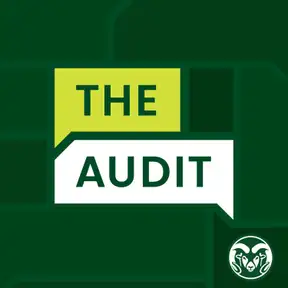More than 20 years after the Enron scandal, what have we learned?
Download MP3Accounting may not be the sexiest topic but in the early 2000s everyone was talking about it after the energy company Enron was found to have committed widespread accounting fraud. Hiding billions of debt, Enron and its accounting firm Arthur Anderson misled Enron's board of directors and its shareholders, who eventually filed a $40 billion lawsuit against the company.
In addition to causing the largest bankruptcy in U.S. history, the fallout from the Enron scandal sent shock waves through the financial system, leading to calls for new regulation to ensure better accuracy and accountability in financial reporting for publicly traded companies. And so, the 2002 Sarbanes-Oxley Act, or SOX Act for short, was enacted.
More than 20 years later, Colorado State University assistant accounting professors Eric Lohwasser and Michelle Draeger have researched the effectiveness of the SOX Act, as well as some of its unintended consequences.
In addition to causing the largest bankruptcy in U.S. history, the fallout from the Enron scandal sent shock waves through the financial system, leading to calls for new regulation to ensure better accuracy and accountability in financial reporting for publicly traded companies. And so, the 2002 Sarbanes-Oxley Act, or SOX Act for short, was enacted.
More than 20 years later, Colorado State University assistant accounting professors Eric Lohwasser and Michelle Draeger have researched the effectiveness of the SOX Act, as well as some of its unintended consequences.

